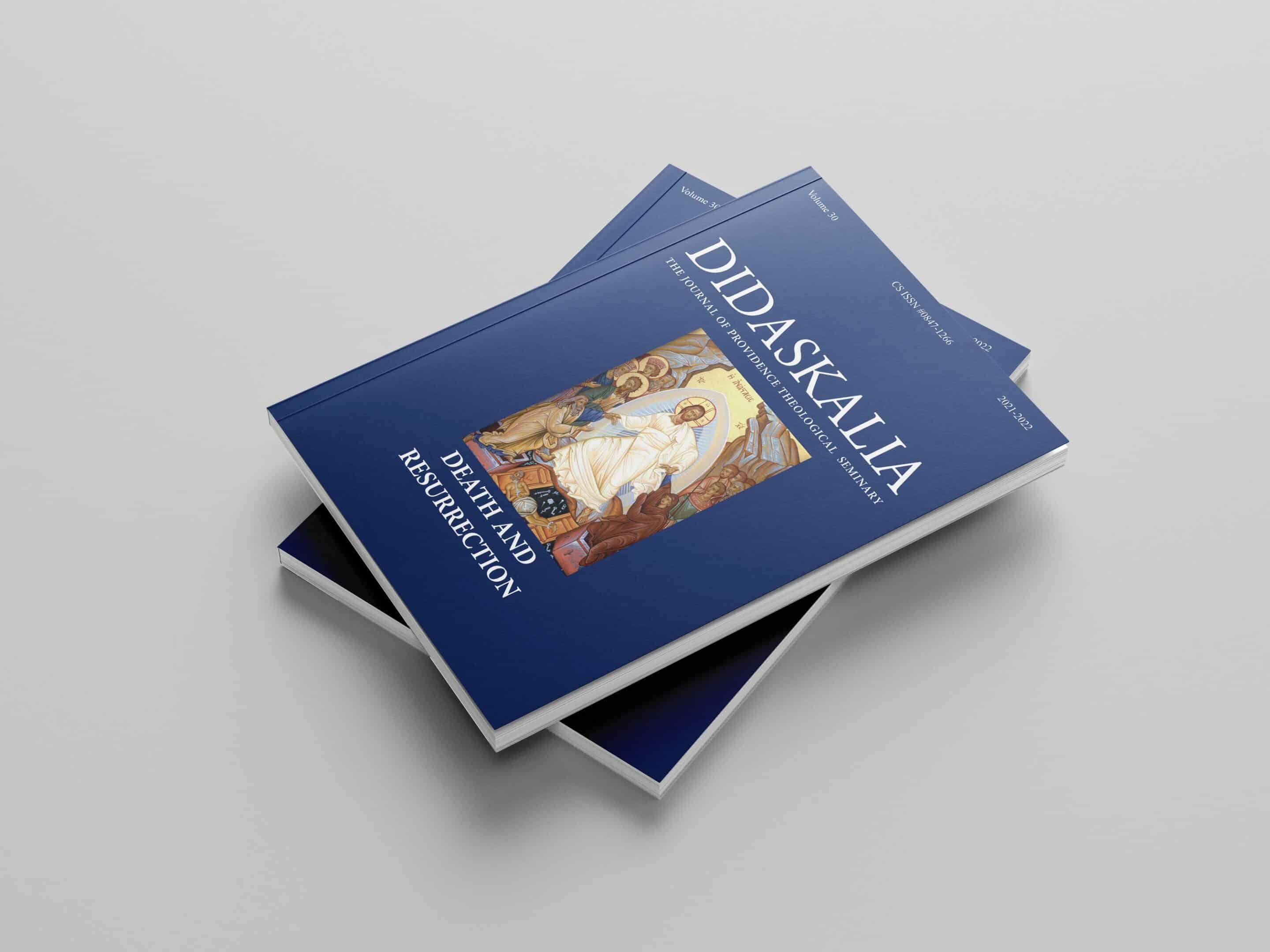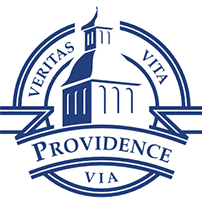OTTERBURNE, MB – Many of you are aware of our Theological Seminary’s academic journal called Didaskalia that is published annually by ProvPress. The journal provides interdisciplinary scholarship of a theologically reflective nature and makes it available to the broader church community.
Didaskalia features peer-reviewed articles, essays, and thoughtful book reviews. Editions are devoted to a relevant theme for the contemporary church and include special features such as interviews with leading practitioners and figures in their field, as well as exemplary sermons with commentary from leading homileticians. You can subscribe here and begin receiving annual mailings of the journal.
The most recent edition of Didaskalia focuses on the theme of death and resurrection. It includes an interview by Robert Dean with a Canadian theologian, physician, and healthcare chaplain about Medical Assistance in Dying (MAID) and other end-of-life issues. The following is a brief excerpt from that conversation.
Three practitioners were interviewed:
- DAVID GURETZKI is Executive Vice-President and Resident Theologian of The Evangelical Fellowship of Canada. He previously served as Dean of Briercrest Seminary and Professor of Theology, Church and Public Life.
- KRISTIN HARRIS is a physician practicing family medicine in Winnipeg, Manitoba.
- PAUL BLAIR serves as a chaplain at the Riverview Health Centre in Winnipeg, Manitoba.
The conversation took place in November 2021 and has been edited for length and clarity.
Robert Dean: How did each of you get drawn into the conversation surrounding Medical Assistance in Dying (MAID)?
David Guretzki: I was teaching at Briercrest when the Ontario cases surrounding physicians’ conscience were being tried. I was called upon to do a couple affidavits on behalf of the claimants in terms of why effective referral might be contrary to an evangelical way of looking at the practice of medicine—especially to the practice of MAID. That’s where I got pulled into it. I didn’t really go looking for it, but God called me into it. I wasn’t even really sure why God called me into this, but it enabled me to do a bunch of research and I started writing about it.
Kristin Harris: As a Christian medical professional, I have had conversations with colleagues over the years as the MAID discussion has evolved in Canada. When Bill C-34 was introduced in Manitoba to protect conscience rights for medical professionals, I presented before the Legislature in support of conscience rights for those who do not feel comfortable providing or referring for MAID. I work both
in a clinic and in a hospital, and I frequently have end of life discussions with patients. Usually, these conversations revolve around finding out how much intervention a patient might want to potentially save their life versus choosing more of a comfort care approach and limiting lifesaving interventions. Since MAID has become legal, and more so in the last year, an increasing number of patients are asking about MAID and some have requested it. I have had to figure out how to respond to these requests in a loving way, that also does not compromise my conscience and deeply held values.
Paul Blair: For me, I just can’t avoid it. It’s part of my job. I got into hospital chaplaincy shortly after the legislation passed in 2016. These days, I am probably involved with at least four or five cases a month. I had to decide early on how I was going to interact with these cases.
RD: For those who have not been following the legal developments here in Canada that closely, it might be helpful to them if you could outline the process of legalization of MAID and the changes of the law in recent years.
PB: In June 2016, the Parliament of Canada passed federal legislation allowing eligible adults to request MAID reasonably foreseeable and you had to be experiencing unbearable suffering. Assessments were required from two separate physicians and there was a minimum 10-day waiting period, before MAID could be administered. After the 10 days, MAID could be provided at any time, as long as the patient still possessed the ability to give active consent. At that time, psychological illness was not a candidate diagnosis.
Then the Supreme Court of Quebec challenged the constitutionality of the foreseeable death part of it, which was when the federal government modified things in March 2021. So now there are two tracks. In one track, you’ve got people whose deaths are foreseeable and have been given a terminal diagnosis, who follow the previous process, except that the 10-day waiting period has been eliminated. In the other track, you have people whose deaths are not foreseeable, and they have a 90-day waiting period. In March 2023, mental or psychological illness will become a candidate diagnosis as well. They’ve also now instituted a pre-approved consent process, so that you no longer need to be able to provide active consent at the time of the provision of MAID.
KH: According to the new regulations, a MAID request has to be made in writing and it has to be signed by one independent witness (previously it was two). A paid professional personal or health care worker can act as independent witness. A person requesting MAID must be assessed by two separate physicians for eligibility. At least one of the physicians must have expertise in the medical condition the patient is suffering from, and if not, a practitioner with the expertise must be consulted. The patient must be informed of available and appropriate means to alleviate their suffering, including counselling, mental health disability support services, community services, and palliative care; must be offered consultation with professionals who provide those services; and the patient and practitioners must have discussed reasonable and available means to relieve the patient’s suffering and agree that the patient has seriously considered those means.
RD: Cultural commentators sometimes look to Canada as the canary in the coal mine of Western societies when it comes to medical assistance in dying, as Canada now has some of the least restrictive laws surrounding MAID in the world. What are each of you are seeing in your respective contexts?
PB: This last amendment to the law has just sped everything up. I’m sometimes flabbergasted at how fast it happens because there’s no required reflection period. Now it takes more time to file a marriage licence than it does to kill yourself. The law requires you to be more reflective about taking out a car loan than about ending your life. I have seen patients euthanized within less than 24 hours of asking for it—which is unprecedented in health care. There is no other health service you can access that rapidly.
To read more, you can access the full article called MAID in Canada: A Multidisciplinary Conversation about End-of-Life Issues with David Guretzki, Kristin Harris, and Paul Blair written by Dr. Robert J. Dean.
CALL FOR PAPERS:
Didaskalia, the ATLA-indexed, peer-reviewed, interdisciplinary theological journal published by Providence Theological Seminary, would like to invite submissions for an upcoming issue on the theme “Ministry in the Prairies.” Submissions from the fields of biblical studies, theology, history, pastoral studies, or any pertinent field of discourse for engaging with the realities facing the Canadian church in the prairies are most welcome. Guidelines for potential contributors to Didaskalia can be found here: https://www.prov.ca/programs-courses/theologicalseminary/didaskalia/contributors/
Submissions are due by October 31, 2023.


